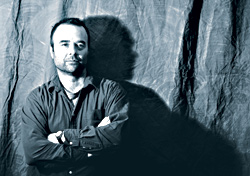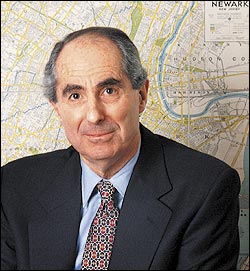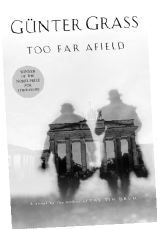WITH THE EXCEPTION of John Steinbeck’s 1952 classic East of Eden, few writers have revisited the story of Cain and Abel. In The Royal Family, William T. Vollmann boldly picks up where Steinbeck left off, giving us a haunting novel full of murder, betrayal, and shame that uses that primordial tale to meditate on the yawning gap between the chosen and the dispossessed in contemporary America.
THE ROYAL FAMILY
by William T. Vollmann (Viking, $40)
Vollmann’s story begins with John and Henry Tyler, two brothers living in present-day San Francisco. John is a high-powered attorney with a penchant for Italian neckties. Henry, a private investigator, lurks among the dingy bars of the city’s seedy Tenderloin district, trying to locate Queen, the legendary overseer of the prostitutes, for a client.
Henry falls in love with John’s wife, plunging the brothers into an urgent sexual rivalry. When the wife commits suicide, leaving no explanatory note behind, the novel commences a noir-ish descent into San Francisco’s underworld. John, ever the rationalist, coldly applies himself to moving on; despondent, Henry continues his search for Queen, hoping she can help him conquer his grief.
Vollmann has earned a reputation as America’s gimlet-eyed voice of the demimonde, but in The Royal Family he creates his most memorable cast yet. There is Domino, a sweet-talking blonde who flatters her johns as she steals their wallets; Beatrice, a Mexican woman who came into the business after surviving a gang rape south of the border; and Sapphire, a mentally disabled woman who murmurs about “l-l-luff” as she crawls around on the floor.
THE INTRIGUING centerpiece of this crew is Queen herself—a small African-American woman who, for a 10 percent cut of the proceeds, keeps her family housed and spiritually nurtured. After winning her trust, Henry becomes Queen’s lover and virtual slave, searching for salvation in their desolate affair.
Vollmann’s writing veers between the hardboiled and poetic, but it never flinches. Sprawled beside a whore, Henry observes as “she lit the pipe again and got on all fours again to blow her drugbreath into his mouth, looking very pretty with her buttocks high. Probably she meant to outshine his glimmer of unreadiness since quick beginnings make quick endings. She had things to do.”
The grisly sections about the royal family are not for the weak of heart, but they lend an authenticity and emotional resonance to the narrative. This element of the novel, coupled with the way it reveals how a society that righteously elects one sect automatically crushes another, makes The Royal Family a gripping and engaging read. Vollmann asks the reader to empathize with a fundamental humanity in society’s shunned souls. Those who make the leap with him are rewarded with a vision that is as powerful as it is horrifying.








